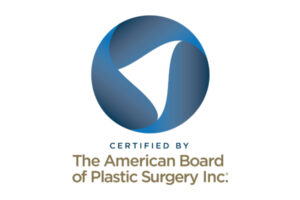So, we’ve kicked off the series “How to Prepare for Your BBL” with a blog that focuses on diet, exercise and vitamins. I can’t overstate the importance of making those things a priority in your pre-surgical planner, so if you’ve missed the first blog, please check it out here.
As I’ve mentioned, there are many things to consider during the planning phase of the BBL, and next up is labs, various testing and medical clearances.
Labs
You will need to have your labs drawn and an EKG performed within 30 days of your surgery. Results will need to be sent to my surgical coordination team.
The labs you will need are:
- CBC (complete blood count)
- BMP (basic metabolic panel)
- PT, PTT (blood clotting)
- TSH, T3, T4 (thyroid hormones)
- BHcG (pregnancy determination)
- A1c (long-term glucose control)
- HIV (test for viral infection)
- EKG (heart conditions)
Anemia

Your CBC results will determine whether you have a low hemoglobin level, better known as anemia. Anemia is significant to diagnose before surgery, but specifically a BBL because patients often lose a lot of blood during this procedure. Low hemoglobin levels before surgery can result in a patient needing a blood transfusion after. Bottom line – you do not want to have a BBL with low hemoglobin.
There are many causes for anemia, but the best option for understanding your specific case is to see a hematologist—a doctor who specializes in the blood.
Several common causes of anemia are solved by taking the preoperative supplements identified in my previous blog, but it isn’t uncommon for many patients to experience low hemoglobin even after taking vitamins, but a hematologist can determine the cause and treat it.
Again, diet plays a vital role in your blood counts, specifically hemoglobin level; therefore, you must eat a clean diet free of processed foods. Your grocery list should consist mainly of fruit, vegetables, whole grains (not processed), beans, meat, nuts and berries. You’ll also want to consider other nutritionally dense foods, like nutritional yeast, flaxseed, chia seed, hemp seed hearts and goji berries.
Blood-Related Issues
PT, PTT levels determine if your blood is clotting normally. We don’t want any patient to have a procedure if blood clotting is problematic because it could lead to excessive bleeding during the operation or after surgery. Again, if a comprehensive panel of labs finds that your levels are abnormal, you’ll want to talk with your primary care physician and schedule an appointment with a hematologist.
Clotting Issues
PTT and platelet counts are labs that can be drawn to determine if you have a bleeding problem. Patients who have elevated levels of PT or PTT cannot have elective surgery. If your platelet counts are too low, you are at high risk for bleeding after surgery and need to see your primary care doctor to determine why your platelet counts are off.
The test will not determine if your blood clots too well – a condition called hypercoagulable state or thrombophilia. Most cases are due to genetics —traits inherited from a patient’s parents. Factor V Leiden is most common, but others like Protein C and Protein S deficiency can also be responsible for clotting issues.
Many other causes are not inherited, but typically patients with these problems are not lining up for elective plastic surgery.
If you know you have a hypercoagulable state, it is vital to let your surgeon know beforehand. I will not operate on any patient with this condition because the risks outweigh the benefits.
Similarly, conditions such as Von Willebrand Disease, Hemophilia, Thrombocytopenia, Factor V deficiency and many others result in the opposite of a hypercoagulable state. In these instances, blood clotting is problematic, resulting in severe bleeding after surgery.
Pregnancy
BHcG is a blood level that determines if you are pregnant, but to be certain, we also perform a urine test on the day of surgery. If your BHCG level comes back positive, but you are no longer pregnant, you must have clearance from your gynecologist and an ultrasound to confirm. On some occasions, it can take time for the BHCG levels to return to normal after pregnancy, resulting in a positive urine test.
Blood Glucose
Hemoglobin A1c, or more commonly A1c, is the best lab test to determine your average blood glucose levels during the last two-to-three-month period. Because it tests an average, spanning a more considerable amount of time, it is much more accurate than a one-time glucose test.
This lab is vital to see how well someone with diabetes controls their glucose levels. A higher A1c is indicative of higher glucose levels. People with diabetes have more risk of heart problems, stroke and other complications if their glucose is high, which is why physicians often use A1c to manage a patient’s diet and medication.
The A1c level is significant for plastic surgery because patients who usually run high are at risk for wound healing problems. The higher the glucose, the more issues we run into with wounds. Keeping that in mind, we usually will not operate on patients with a hemoglobin A1c above 7.0.
Medial Clearances
Additionally, a person will be required to get medical clearance in some instances. You will need clearance if you are/have:
- Over 50 years of age
- Any medical problems
- Hyper/Hypothyroidism
- Type II Diabetes
- Hypertension
Doctor’s Orders: If you’re considering a BBL, please begin by focusing on the parts of your health that YOU can regulate and control. By flexing this knowledge and expertise in planning, you are taking the reins of your overall health and healing before, during and after surgery.
*Be Sure to watch the BTM: The Podcast with all the information you need to know before having a BBL.






